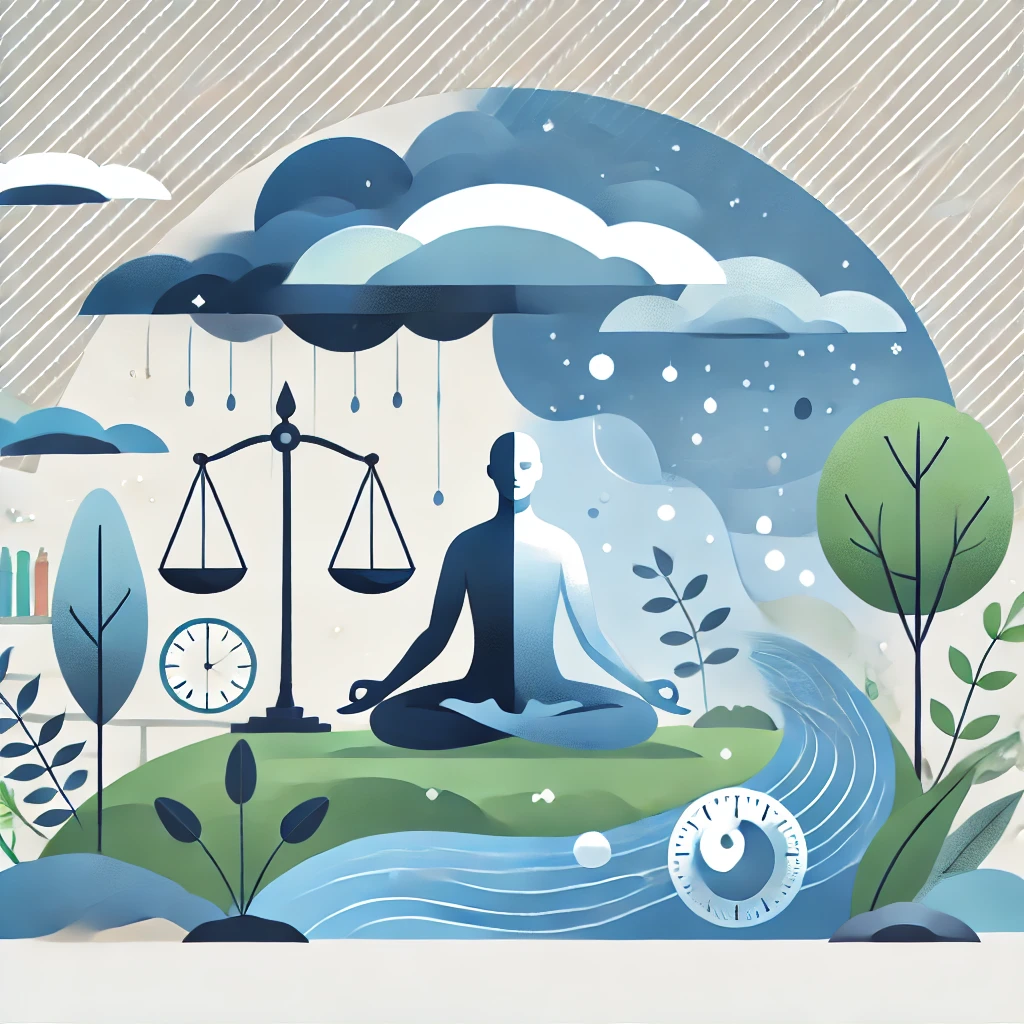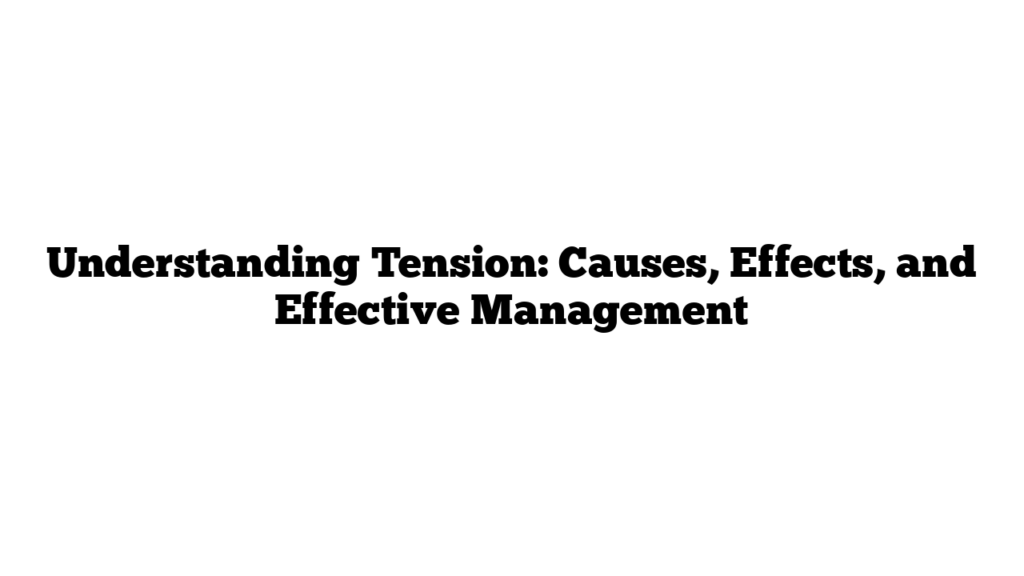What is Tension?
Tension is a physical, emotional, or mental strain that arises when we face stress or pressure. It’s a common part of life but can impact our health if it becomes chronic. In the USA, tension is a significant contributor to health issues, affecting millions of people annually.

Types of Tension
- Physical Tension:
- Caused by overexertion, injury, or poor posture.
- Symptoms include tight muscles, aches, and fatigue.
- Emotional Tension:
- Arises from unresolved feelings such as anger, sadness, or anxiety.
- Signs include irritability, mood swings, and mental fatigue.
- Mental Tension:
- Linked to overthinking, excessive worry, or cognitive overload.
- Can lead to difficulty concentrating, headaches, or insomnia.
What Causes Tension?
- Workplace Stress: Deadlines, long hours, and demanding bosses.
- Financial Pressures: Bills, loans, or unexpected expenses.
- Relationship Issues: Conflicts, misunderstandings, or breakups.
- Health Problems: Chronic illnesses or unexpected health crises.
- Environmental Triggers: Noise, pollution, or unsafe surroundings.
How Tension Affects Your Body
Prolonged tension doesn’t just make you feel bad; it can also harm your body. Here’s how:
- Muscles Tighten: This can lead to chronic pain, especially in the neck and shoulders.
- Heart Rate Increases: Heightened tension can strain your cardiovascular system.
- Hormonal Imbalance: Stress hormones like cortisol spike, leading to health complications.
- Weakened Immunity: Prolonged tension may lower your ability to fight infections.
Effective Ways to Manage Tension
1. Practice Relaxation Techniques
- Deep breathing, meditation, and yoga can significantly reduce tension.
- Studies from the USA show yoga reduces stress hormones by up to 30%.
2. Exercise Regularly
- Physical activity helps release endorphins, the body’s natural stress relievers.
- Even a 20-minute walk can improve your mood.
3. Maintain a Healthy Diet
- Avoid caffeine, sugar, and processed foods.
- Incorporate leafy greens, nuts, and omega-3-rich fish for stress reduction.
4. Prioritize Sleep
- Aim for 7-9 hours of uninterrupted sleep each night.
- A well-rested mind handles stress better.
5. Seek Professional Help
- Counseling or therapy can provide strategies to cope with chronic tension.
- Cognitive Behavioral Therapy (CBT) is highly effective.
6. Build a Support System
- Surround yourself with supportive friends and family.
- Talking to someone you trust can help lighten emotional burdens.
7. Set Boundaries
- Learn to say no to tasks that overwhelm you.
- Prioritize activities that align with your well-being.
8. Try Mindfulness Practices
- Focus on the present moment to reduce overthinking.
- Mindfulness apps like Headspace and Calm are popular in the USA.
When to Seek Medical Help
If tension persists despite your best efforts, consult a healthcare professional. Chronic tension may signal underlying conditions such as:
- Anxiety disorders
- Depression
- High blood pressure
Visit medicaltimes.io for trusted medical tips and expert guidance on managing tension effectively.
Trusted References for More Insights
FAQs: Tension Management
1. What are common signs of tension?
- Physical pain, headaches, irritability, and trouble sleeping.
2. Can diet influence tension?
- Yes, a balanced diet helps manage stress by stabilizing energy and mood.
3. How does exercise relieve tension?
- It releases endorphins, improving your mood and reducing stress hormones.
4. Is therapy necessary for tension?
- Therapy can help if tension becomes overwhelming or chronic.
5. Can technology help with tension?
- Yes, apps like Calm and Headspace provide guided relaxation techniques.
6. How does sleep affect tension?
- Lack of sleep worsens stress, while quality sleep aids emotional balance.
7. Are there quick fixes for immediate tension relief?
- Deep breathing and short walks can provide quick relief.
8. Is tension linked to physical health issues?
- Yes, chronic tension can lead to high blood pressure and heart disease.
9. What’s the role of mindfulness in tension management?
- It reduces overthinking and brings clarity, easing mental strain.
10. How can I avoid tension triggers?
- Identify and manage stressors proactively through planning and boundary setting.
